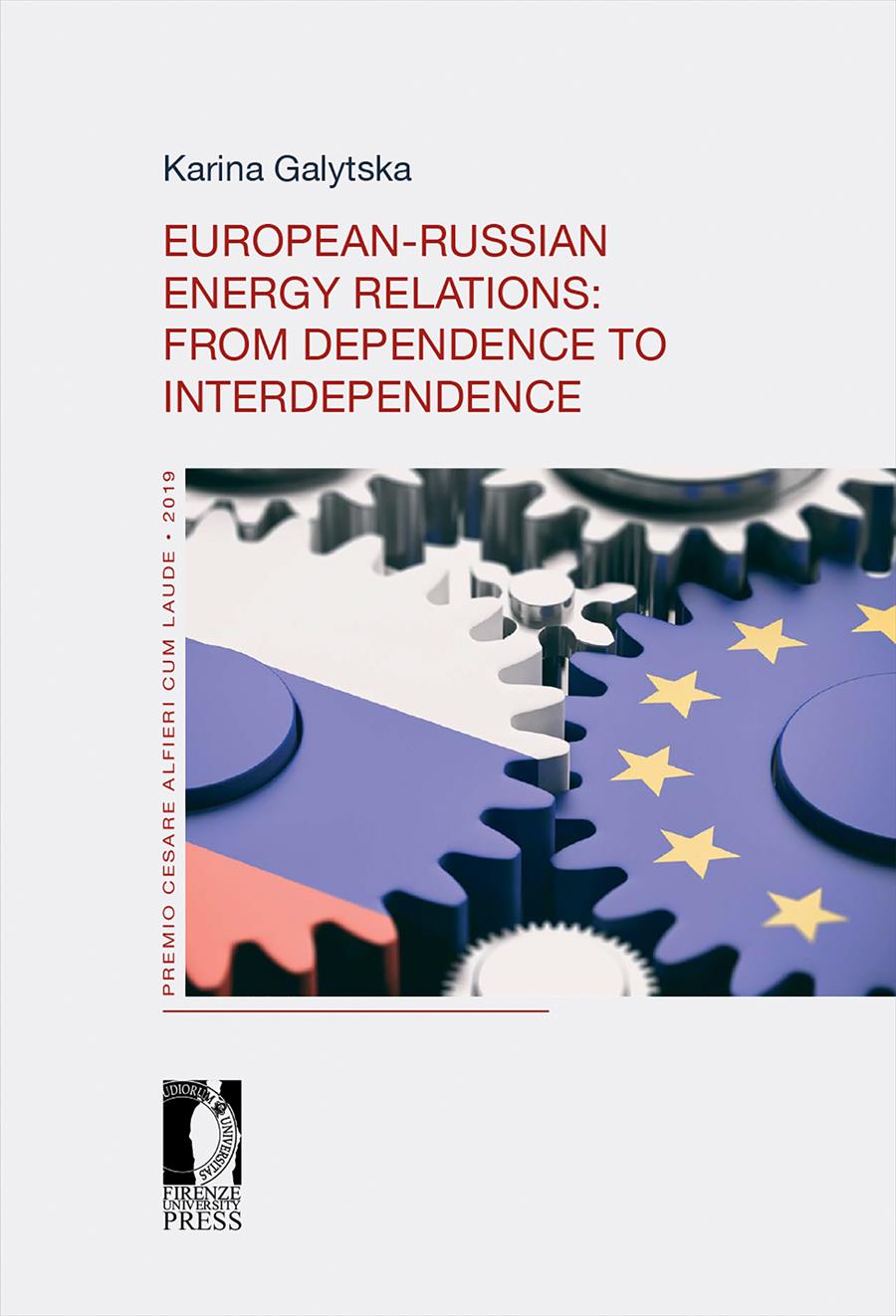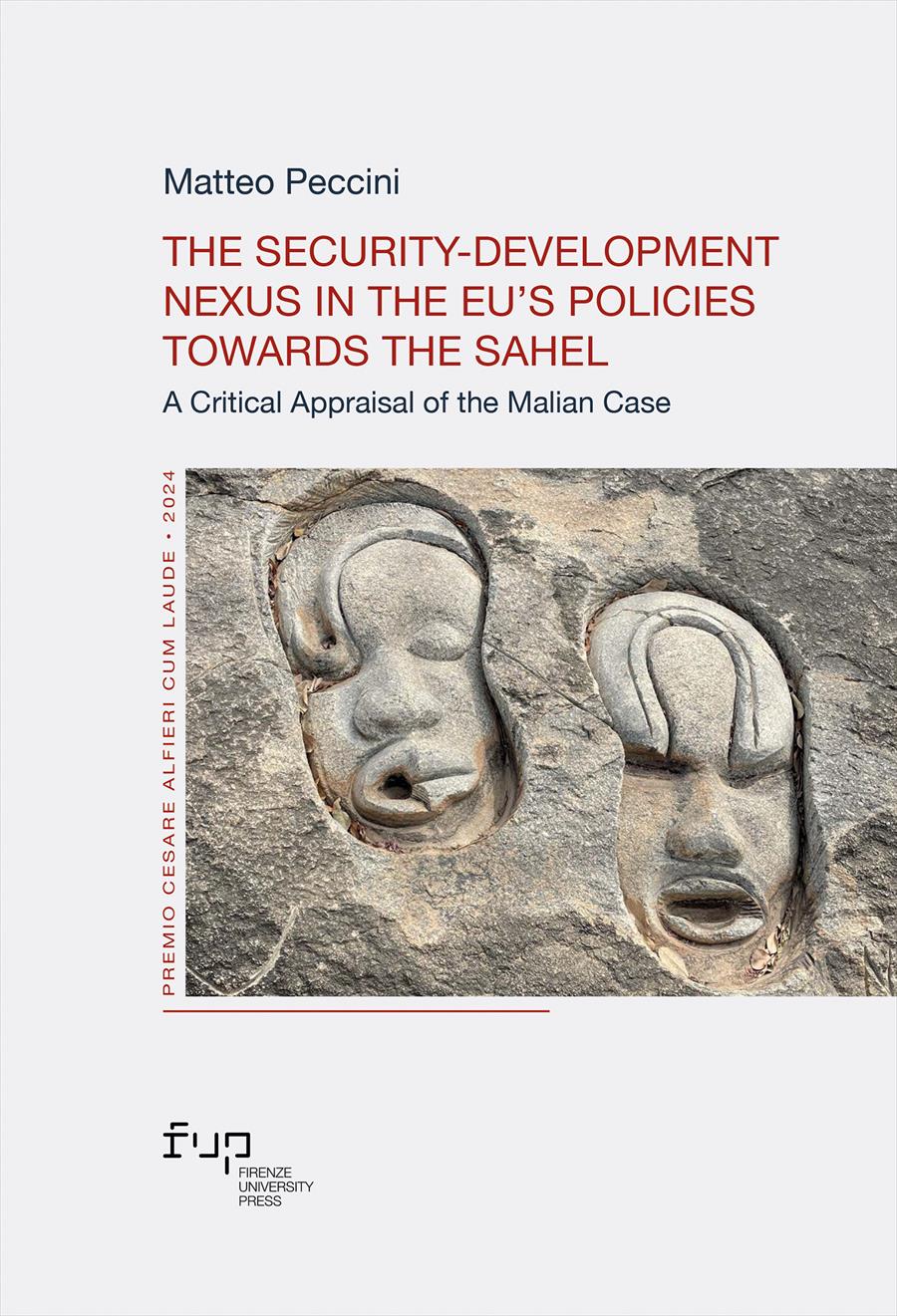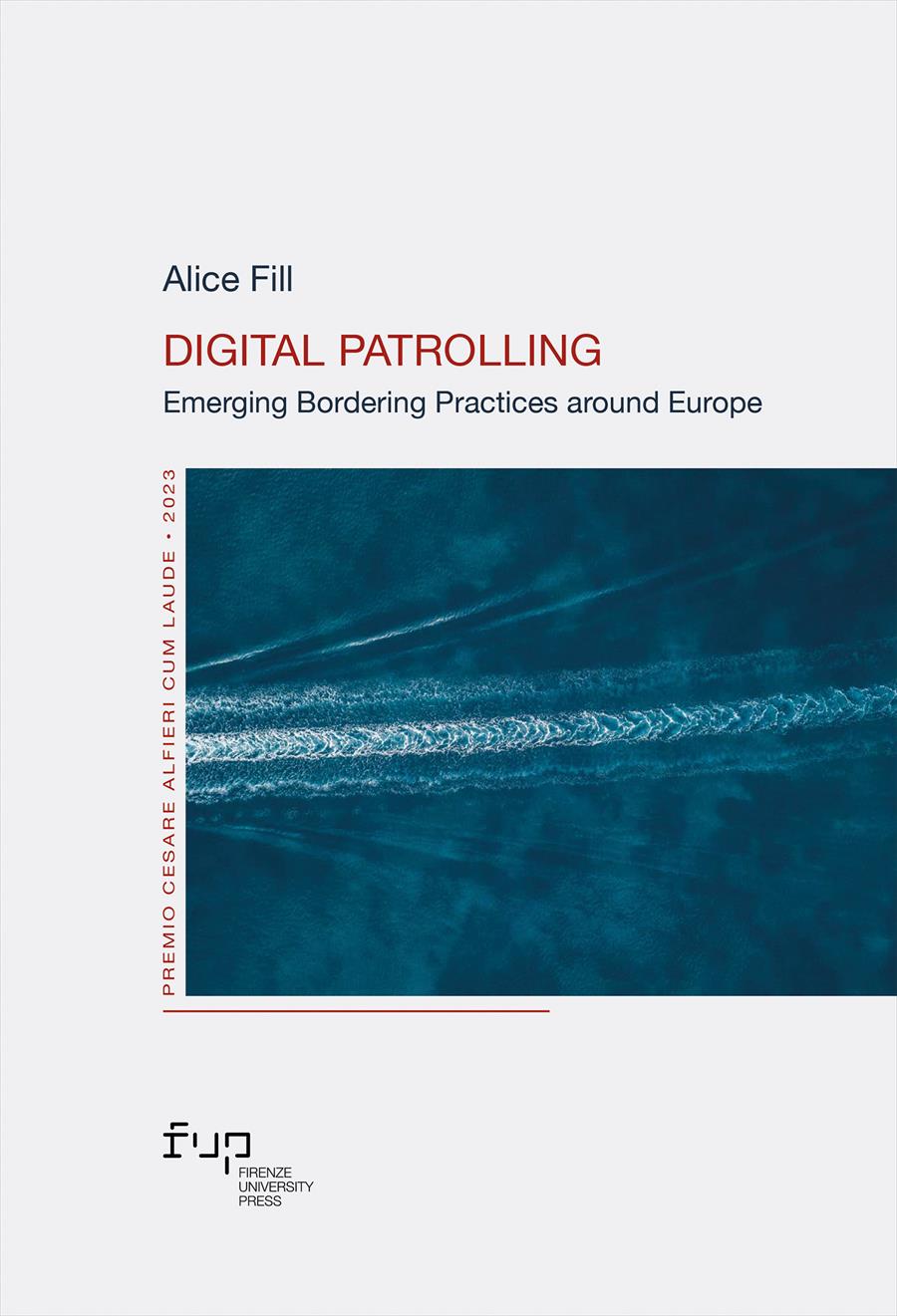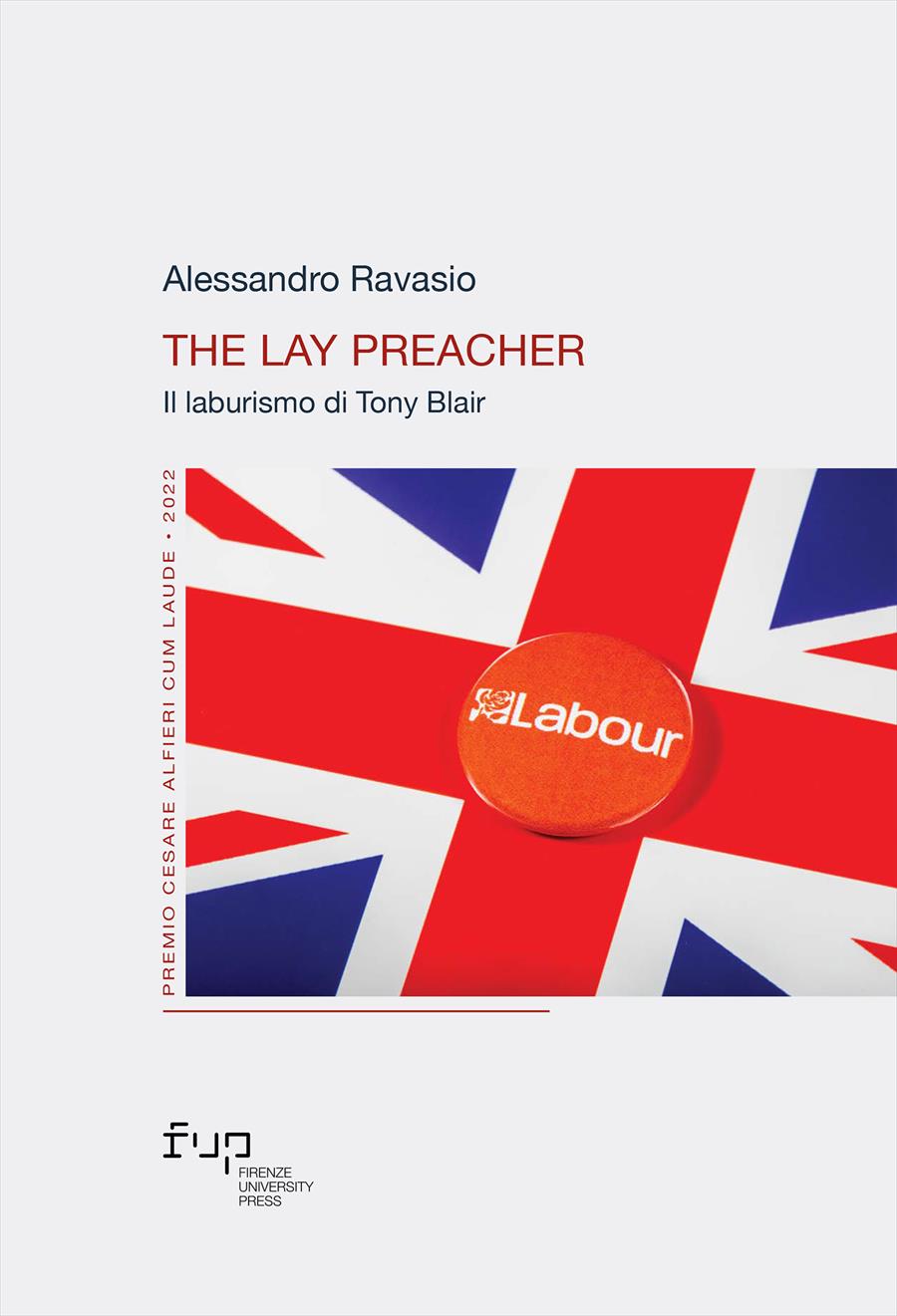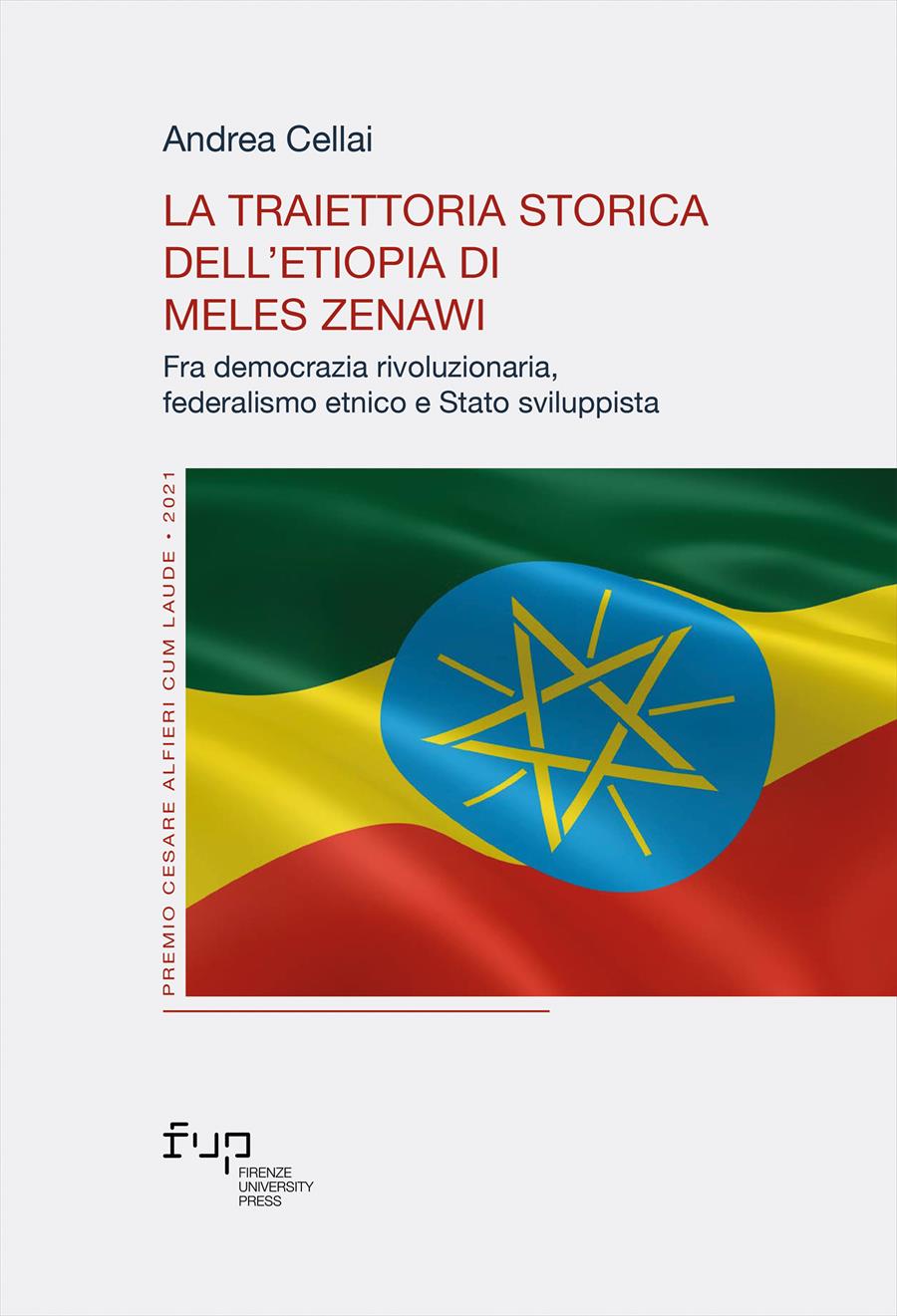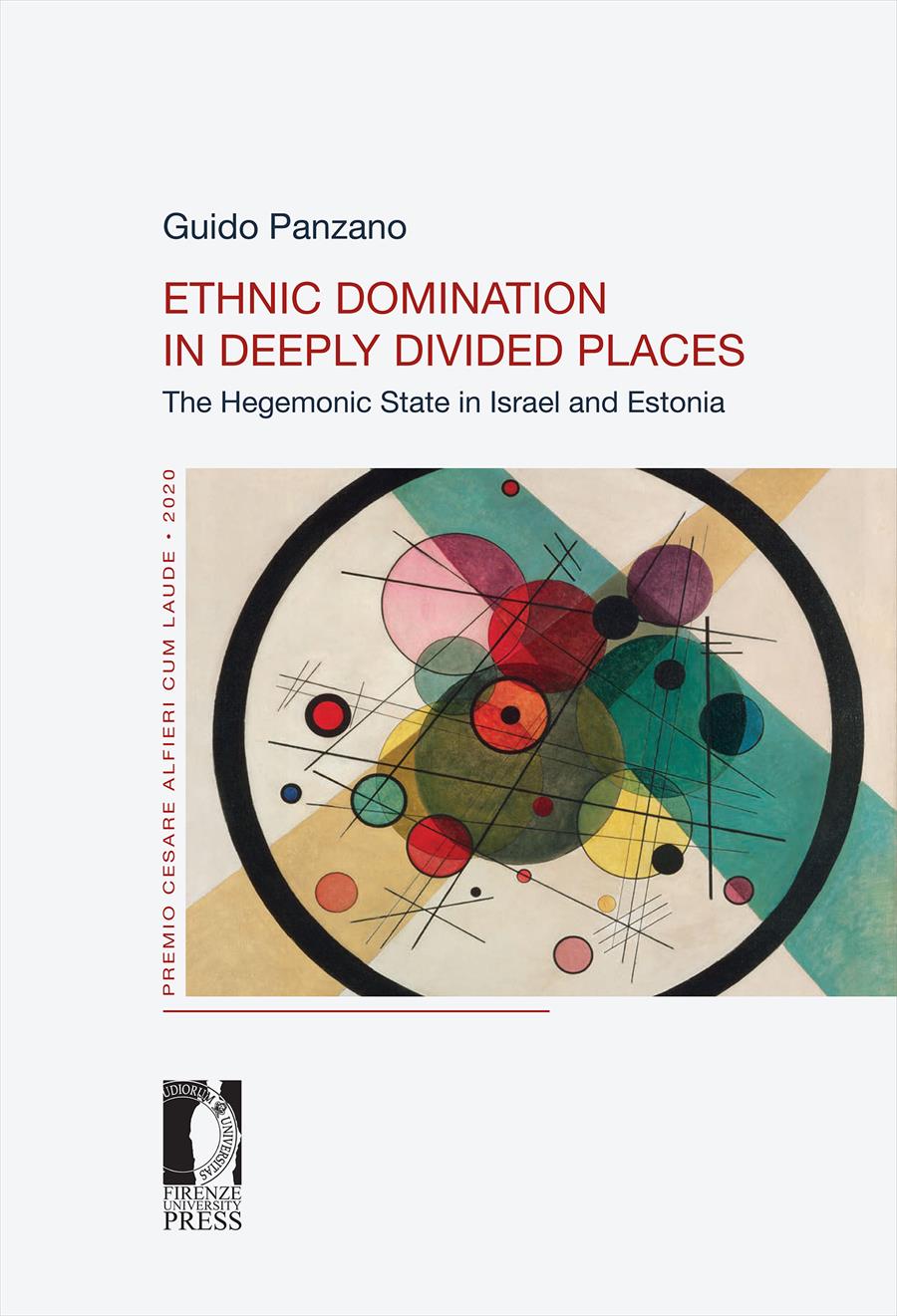European-Russian Energy Relations: from Dependence to Interdependence
- Karina Galytska,
Due to the exploitation of international reservoirs, natural energy sources have become rare, disputed among States and therefore strategic. The reliance on these resources is linked to energy security and dependence in both terms of energy imports or exports. Furthermore, the access and reallocation of energy flows entail an alteration of the balance of power among States as well as the raise of national energy security strategies and debates. The aim of this volume is to analyze the evolution of energy relations between the European Union and the Russian Federation from a state of pure Dependence to the establishment of a balanced Interdependence, underling also the challenges facing the EU in terms of dependence and diversifications in the framework or the EU-Russian energy cooperation.
- Parole chiave:
- energy relations,
- energy dependence and interdependence,
- energy security,
- pipelines,
- EU-Russia relations,
- DOI: 10.36253/978-88-5518-415-1
- Collana: Premio Cesare Alfieri «Cum Laude»
- Comitato scientifico
- Lingua: Inglese
- Argomento: Storia internazionale
- Allen E. 2017. “What is the Treaty of Rome”. The Telegraph, 24 March, 2017. <https://www.telegraph.co.uk/news/0/treaty-rome/> (2018-10-16).
- Anger N. Zannier L. 2017. “A new era of EU energy policy? Delivering on the Energy Union by National Plans”. Center of European Policy Study – Commentary, 6 June, 2017. <https://www.ceps.eu/publications/new-era-eu-energy-policy-deliveringenergy-union-national-plans> (2018-10-19).
- Aoun M. 2015. “European Energy Security Challenges and Global Energy Trends: Old Wine in New Bottles?”. Istituto Affari Internazionali (IAI), IAI Working Papers 15, 03 January, 2015. <http://www.iai.it/sites/default/files/iaiwp1503.pdf> (2018-10-19).
- Appleyard D. 2015. “Power plant filtration technology to achieve environmental performance”. Power Engineering International, 21 October, 2015. <https://www.powerengineeringint.com/articles/print/volume-23/issue-10/features/filteringout-power-plant-emissions.html> (2018-10-10).
- Artic Council – Expert Group on Black carbon and Methane, 2017. “Summary of progress and recommendations 2017”.
- Aune F. R., Golombek R., Moe A., Rosendahl E., Le Tissier H. H. 2015. “Liberalizing Russian gas Markets – an economic analysis”. Norwegian University of Life Sciences School of Economics and Business (NMBU), Working Papers n.11: 2-37
- Avis P. 2017. “The Impact of Oil and Gas Sanctions on Russia”. Energy Analyst, November 8, 2017. <https://energyanalyst.co.uk/impact-oil-gas-sanctions-russia/> (2018-10-10).
- Baev P. K. 2012. “From European to Eurasian energy security: Russia needs and energy Perestroika”. Journal of Eurasian Studies 3 (July): 177-84. <https://www.sciencedirect.com/science/article/pii/S1879366512000097> (2018-10-25).
- Bahgat G. 2006. “Europe’s energy security: challenges and opportunities”. International Affairs 82 (September): 961-75.
- Bakharyova A. 2014. “Strany BRIKS lidiruyut po investitsiyam b “zelyonuyu” eneggetiku”. Nezavisimaya gazeta, 2 noyabryam 2014. <http://www.ng.ru/ng_energiya/2014-02-11/13_briks.html> (2018-06-03).
- Bakst A. 2006. “Baltic Sea Pipeline – Sweden afraid of Russian Spooks”. Spiegel online, 15 November, 2006. <http://www.spiegel.de/international/baltic-sea-pipelinesweden-afraid-of-russian-spooks-a-448652.html> (2018-10-13).
- Baldwin D. A. 1997. “The concept of Security”. Review of International Studies 23: 5-26. <https://www.princeton.edu/~dbaldwin/selected%20articles/Baldwin%20(1997)%20The%20Concept%20of%20Security.pdf> (2018-10-19).
- Bardazzi P., Pazienza M. G., Tonini A. 2016. European Energy and Climate Security –Public Policies, Energy Sources and Eastern Partners. Cham: Springer International Publishing.
- Barden J. 2016. “Low Oil Prices have affected Russian petroleum companies and government revenues”. US Energy Information Administration, 20 October, 2016. <https://www.eia.gov/todayinenergy/detail.php?id=28432> (2018-10-16).
- Bazilian M., Roques F. 2008. Analytical Methods for Energy Diversity & Security. Amsterdam: Elsevier edition.
- Berzina K. 2015. “Russia Strikes Back against Europe’s Energy Union”. GMF.org, 20 May, 2015. <http://www.gmfus.org/blog/2015/05/20/russia-strikes-back-againsteurope%E2%80%99s-energy-union> (2018-10-27).
- Bhattacharyya S.C. 2011. Energy Economics: Concepts, Issues, Markets and Governance. London: Springer.
- Borovskij Y. V. 2011. Sovremennye problem mirovoj energetiki. Moskva: Isdatelskaya gruppa “Navona”.
- Borsa Italiana. 2009. “CAPM. Capital Asset Pricing Model”. Borsa Italiana, 06 March, 2009. <https://www.borsaitaliana.it/notizie/sotto-la-lente/capm.htm> (2018-08-18).
- Bros T. 2017. “European Gas markets: key trends”. The Oxford Institute for Energy Studies, 5 July, 2017: 1-25.
- Caiser T. 2011. “The rise of Energy to the top of the EU-Russia Agenda: from Interdependence to Dependence?”. Geopolitics 16: 536-552.
- Cameron P. D. 2005. Legal Aspects of EU Energy Regulation – implementing the New Directives on Electricity and Gas across Europe. New York: Oxford University Press.
- CEE Bankwatch Network. 2016. “NGOs urge the European Investment Bank not to finance the Southern Gas Corridor”. CEE Bankwatch Network, 28 January, 2016. <https://bankwatch.org/press_release/ngos-urge-the-european-investment-banknot-to-finance-the-southern-gas-corridor> (2018-10-09).
- Chang F. K. 2017. “Effectiveness of Economic Sanctions on Russia’s Economy”. Foreign Policy Research Institute (FPRI), 1 June, 2017. <https://www.fpri.org/2017/06/effectiveness-economic-sanctions-russias-economy/> (2018-10-15).
- Cherp A. 2012. “Defining Energy Security takes more than asking around”. Energy Policy 48: 841-842.
- Cherp A., Jewell J. 2014. “The concept of Energy Security: Beyond the four As”. Energy Policy 75: 415-421. DOI: 10.1016/j.enpol.2014.09.005
- Closson S. 2008. “Energy Security of the European Union”. Center for Security Studies (CSS) 3/36 (June): 1-3. <http://www.css.ethz.ch/content/dam/ethz/specialinterest/ gess/cis/center-for-securities-studies/pdfs/CSS-Analyses-36.pdf> (2018-09-23).
- Coote B. 2018. “Impact of Sanctions on Russia’s Energy Sector”. Atlantic Council – Global energy center, Economic Sanctions Initiatives (ESI), March 2018. <http://www.atlanticcouncil.org/images/publications/Impact_of_Sanctions_on_Russia_s_Energy_Sector_web.pdf> (2018-10-19).
- Copeland D. 1996. “Economic Interdependence and War: a Theory of Tradeexpectations”. International Security 20, 4: 5-41. DOI: 10.2307/2539041
- Copley G., Bodansky Y., Pickford A., Archibald D. 2011. Energy Security 2.0; How energy is central to the changing global balance in the New Age of Geography. Alexandria, Virginia (USA): ISSA.
- Daiss T. 2018. “Russia struggles as Sanctions choke energy sector”, Oil Price.com, 19 March, 2018. <https://oilprice.com/Energy/Energy-General/Russia-Struggles-As-Sanctions-Choke-Energy-Sector.html> (2018-10-16).
- Dawson J. 2015. “The Different Uses of Energy on our Daily lives”. Renewable Energy World, 27 December, 2015. <https://www.renewableenergyworld.com/ugc/articles/2015/12/the-different-uses-of-energy-in-our-daily-lives.html> (2018/10/16).
- Dempsey J. 2013. “Victory for Russia as the EU’s Nabucco gas projects collapse”. Carnegie Europe, 1 July, 2013. <http://carnegieeurope.eu/strategiceurope/52246?lang=en> (2018-10-17).
- Dempsey J. 2017. “Judy Asks: Is Europe too dependent on Russian Energy?”. Carnegie Europe, 12 July, 2017. <http://carnegieeurope.eu/strategiceurope/71507> (2018-10-22).
- Dharma R. 2013. “Yamal-Europe 2 project could be completed in 2019”. Hydrocarbons Technology, 8 April, 2013. <https://www.hydrocarbons-technology.com/uncategorised/newsyamal-europe-2-pipeline-project-to-complete-by-2019/> (2018-10-13).
- Egan M. 2018. “America is now the world’s largest oil producer”. CNN Money, 12 September, 2018. <https://money.cnn.com/2018/09/12/investing/us-oilproduction-russia-saudi-arabia/index.html> (2018-09-16).
- Egorov B. 2017. “Black gold: How the Russian oil industry was born”, Russia Beyond, 21 September, 2017. <https://www.rbth.com/business/326217-black-gold-howrussian-oil> (2018-09-18).
- Enerdata, 2018. “Global Energy Statistical Yearbook 2018”,<https://yearbook.enerdata.net/total-energy/world-consumption-statistics.html> (2018-08-09).
- Erbach G. 2015. “Energy Union; New impetus for coordination and integration of energy policies in the EU”. European Parliamentary Research Service (EPRS), European Parliament Briefing, 5 March 2015. <http://www.europarl.europa.eu/RegData/etudes/BRIE/2015/551310/EPRS_BRI(2015)551310_EN.pdf> (2018-10-3).
- Eriksson R. 2011. “The European Energy Policy – Framing on Energy Security in the European Union”. Diss. Lund University, Department of Political Science. <http:// lup.lub.lu.se/luur/download?func=downloadFile&recordOId=2063691&fileOId=2063692> (2018-09-16).
- European External Action Service (EEAS). 1988. “Gulf Cooperation Council (GCC) and the EU”. <https://eeas.europa.eu/headquarters/headquarters-homepage/338/gulfcooperation-council-gcc-and-the-eu_en> (updated 2016-05-02).
- European Commission. 1992. "Technical Assistance to the Commonwealth of Independent States and Georgia (TACIS)", 14 september 1992. <http://europa.eu/rapid/press-release_MEMO-92-54_en.htm> (2018-10-21).
- European Commission (EC). 1955. Green Paper “For a European Union Energy Policy”. (COM(94)659/final/2) adopted in Brussels, 23 February, 1995. <http://aei.pitt.edu/1185/1/energy_gp_COM_94_659.pdf> (2018-10-21).
- European Commission (EC). 2000. Press Release Database “EU/Russia Summit Joint Declaration”. Paris, 30 October, 2000 (IP/00/1239). <http://europa.eu/rapid/pressrelease_IP-00-1239_en.htm> (2018-10-27).
- European Commission (EC). 2003. "EU-Russia Summit Joint Statement”, St-Petersburg, 31 May, 2003. 9937/03 (Presse 154).
- European Commission. 2004. "Communication from the Commission to the Council and to the European Parliament on relations with Russia (COM/2004/0106 final)". <https://eur-lex.europa.eu/LexUriServ/LexUriServ.do?uri=CELEX:52004DC0106:EN:HTML> (2018-09-26).
- European Commission (EC). 2008. EC Communication “Second Strategic Energy Review –An EU Energy Security and Solidarity Action Plan” (COM/2008/781). <https://eur-lex.europa.eu/LexUriServ/LexUriServ.do?uri=COM:2008:0781:FIN:EN:PDF> (2018-10-25).
- European Commission (EC). 2012. “Energy Roadmap 2050”. Luxembourg, Publication Office of the EU.
- European Commission (EC). 2013. “Roadmap – EU-Russia Energy Cooperation until 2050”, March 2013. <https://ec.europa.eu/energy/sites/ener/files/documents/2013_03_eu_russia_roadmap_2050_signed.pdf> (2018-10-22).
- European Commission (EC). 2014. “EU Energy in figures, statistical pocketbook 2014”. <https://ec.europa.eu/energy/sites/ener/files/documents/2014_pocketbook.pdf> (2018-10-21).
- European Commission (EC). 2015. “Energy Union Package”. Brussels, 25 February, 2015 (COM(2015) 80 final). <https://eur-lex.europa.eu/resource.html?ur i=cel lar:1bd46c90-bdd4-11e4-bbe1-01aa75ed71a1.0001.03/DOC_1&format=PDF> (2018-10-03).
- European Commission (EC). 2017. “Energy Union: Europe’s transition to a lowcarbon society is becoming the new reality”. 24 November, 2017. <https://ec.europa.eu/commission/news/energy-union-2017-nov-24_en>(2018-10-27).
- European Commission (EC). 2017. White Paper “The Future of Europe – Reflections and scenarios for the EU27 by 2025”. Brussels, 1 March, 2017. <https://ec.europa.eu/commission/sites/beta-political/files/white_paper_on_the_future_of_europe_en.pdf> (2018-10-15).
- European Commission Directorate-General for Energy. 2011. “EU-Russia Energy Dialogue; The First ten years: 2000-2010”, Belgium. <https://ec.europa.eu/energy/sites/ener/files/documents/2011_eu-russia_energy_relations.pdf> (2018-10-03).
- European Council. 1999. “Common Strategy of the European Union on Russia”. 4 June, 1999 (1999/414/CFSP). <http://trade.ec.europa.eu/doclib/docs/2003/november/tradoc_114137.pdf> (2018-10-15).
- European Council. 2003. “A Secure Europe in a Better World - European Security Strategy”. Brussels, 12 December, 2003. <https://europa.eu/globalstrategy/en/european-security-strategy-secure-europe-better-world> (2018-10-15).
- European Council. 2005a. “15th EU-Russia Summit”. Moscow, 10 May, 2005. 8799/05 (Presse 110).
- European Council. 2005b. “16th EU-Russia Summit”. London, 4 October, 2005. 12946/05 (Presse 254).
- European Council. 2010. “Joint Statement on the Partnership for Modernization“. EU-Russia Summit 31 May-1 June, 2010, Rostov-on-Don. 10546/10 (Presse 154).
- European Parliament. 1996. "Directive 96/92/EC of the European Parliament and of the Council of 19 December 1996 concerning common rules for the internal market in electricity".
- European Parliament. 1998. "Directive 98/30/EC of the European Parliament and of the Council of 22 June 1998 concerning common rules for the internal market in natural gas".
- European Parliament. 2008. EP Question “Answer given by Mr. Pielbalgs on behalf of the Commission”. (E-0547/200), 28 March, 2008. <http://www.europarl.europa.eu/sides/getAllAnswers.do?reference=E-2008-0547&language=EN> (2018-10-01).
- European Parliament. 2017. “Russia’s and EU’s sanctions: economic and trade effects, compliance and the way forward”. Directorate-General for External policies, Policy Department, October, 2017 (EP/EXPO/B/INTA/2017/11). <http://www.europarl.europa.eu/RegData/etudes/STUD/2017/603847/EXPO_STU(2017)603847_EN.pdf> (2018-10-15).
- European Union. 1957. "Treaty establishing the European Economic Community", Rome, 25 March, 1957. <https://www.cvce.eu/content/publication/1999/1/1/cca6ba28-0bf3-4ce6-8a76-6b0b3252696e/publishable_en.pdf> (2018-09-15).
- European Union. 1992. "Treaty on European Union". <https://www.ecb.europa.eu/ecb/legal/pdf/maastricht_en.pdf> (2018-10-21).
- European Union. 2006. "Partnership and Cooperation Agreement with Russia (PCA)", Article 65. <http://trade.ec.europa.eu/doclib/docs/2003/november/tradoc_114138.pdf> (2018-09-05).
- European Union. 2007. "Lisbon Treaty. <http://www.lisbon-treaty.org> (2018-10-15).
- European Union. 2008. “Report on the Implementation of the European Security Strategy (ESS) – Providing Security in Changing World”. Brussels, 11 December, 2008 (S407/08). <https://www.europa.eu> (2018-09-25).
- European Union. 2017. EEAS: “A Global Strategy for the European Union”, 19 June, 2017. <https://europa.eu/globalstrategy/en/global-strategy-european-union> (2018-10-15).
- Eurostat. 2018. “Shedding light on energy in the EU – A guided tour of energy statistics”. <https://ec.europa.eu/eurostat/cache/infographs/energy/bloc-2c.html> (2018-10-10).
- Eurostat Statistic Explained. 2018. "EU imports of energy products – recent development", 07 April, 2018. <https://ec.europa.eu/eurostat/statistics-explained/index.php/EU_imports_of_energy_products_-_recent_developments#Overview> (2018-10-15).
- Fernandes C. P., Rodrigues T. F. 2017. “Geopolitics of Energy and Energy Security”. Instituto da Defesa Nacional (IDN) Cadernos 24 (June): 1-24.
- Forsberg T. 2013. “The Power of the European Union. What explains the EU’s (lack of) Influence on Russia?”. Politique Européenne 1, 39: 22-42. <https://www.cairn.info/revue-politique-europeenne-2013-1-page-22.htm> (2018-10-22).
- Giddens E. 2015. Nespokojnyj i Moguschestvennyj kontinent. Chto zhyot Evropu v buduschem?, perevod s anglijskogo Aleksandra Matveenko. Moskva: Izdatelskij Dom DELO.
- Gillingham K., Rapson D., Wanger G. 2014. “The Rebound Effect and Energy Efficiency Policy”. Resource for the Future – Discussion Paper (November). <http://www.rff.org/files/sharepoint/WorkImages/Download/RFF-DP-14-39.pdf> (2018-10-21).
- Grigas A. 2018. “Russian gas and the case for Sanctions”. The American Interest, 24 September, 2018. <https://www.the-american-interest.com/2018/09/24/russiangas-and-the-case-for-sanctions/> (2018-10-14).
- Gurbanov I. 2017. “Perspectives for ‘Turkish Stream’ project: possible scenarios and challenges”. Natural Gas World, 21 January, 2017. <https://www.naturalgasworld.com/perspective-for-turkish-stream-project-possible-scenarios-and-challenges-35401> (2018-10-11).
- Gurbanov I. 2017. “Propaganda against Trans-Adriatic pipeline continues under ‘Environmental concerns”. Eurasia Daily Monitor 14, 55. <https://jamestown.org/program/propaganda-trans-adriatic-pipeline-continues-environmental-concerns/> (2018-09-07).
- Haase N. 2008. “European gas market liberalization: Are regulatory regimes moving towards convergence?”. Oxford Institute for Energy Studies, NG 24 (May). <https://www.oxfordenergy.org/wpcms/wp-content/uploads/2010/11/NG24-European GasMarketLiberalisationArerRegulatoryRegimesMovingTowardsConvergence-NadineHaase-2008.pdf> (2018-10-22).
- Haghighi S. S. 2007. Energy Security – the external legal relations of the European Union with Major Oil – and Gas-Supplying Counties. Oxford and Portland: Hart Publishing.
- Heidemann T. 2018. “Renewable energy takes hold in the Russian energy sector”. Lexology Newsfeed, 21 February, 2018. <https://www.lexology.com/library/detail.aspx?g=902b4c89-0fc9-4769-9d95-f3f8e2bb1d58> (2018-09-25).
- Hill M. 1973. “Diversity and evenness: a unifying notation and its consequences”. Ecology 54(2): 427-32.
- Huakkala H., Medvedev S. edited by. 2001. The EU Common Strategy on Russia. Learning the Grammar of the CFSP, The Finnish Institute of International Affairs & Institut für Europäische Politik: Kauhava. <http://citeseerx.ist.psu.edu/viewdoc/download?doi=10.1.1.198.3350&rep=rep1&type=pdf> (2018-10-13).
- International Energy Agency (IEA). 2006. “World Energy Outlook 2006”, Paris 2006.
- International Energy Agency (IEA). 2011. “Energy Policies of IEA Countries, Denmark – 2011 Review”. Paris 2011. <https://www.iea.org/publications/freepublications/publication/Denmark2011_unsecured.pdf> (2018-10-22).
- International Energy Agency (IEA). 2014. “Energy Policies of IEA Countries: European Union 2014 Review”, Energy Policies of IEA Countries. Paris. DOI: 10.1787/9789264190832-en
- International Energy Agency (IEA). 2016. “Word Energy Outlook 2016”, November 2016.
- International Energy Agency (IEA). 2017. “World Energy Investment – Executive Summary 2017” Paris, July 2017. <https://www.iea.org/Textbase/npsum/WEI2017SUM.pdf> (2018-10-21).
- Ivanov A., Matveev I. 2017. “World Energy at the turn of 2018: The transformation continues, finding new shades”, Специализированный журнал «Бурение & Нефть» (Russian Market research Institute, VNIKI), December 2017. <http://burneft.ru/archive/issues/2017-12/4> (2018-06-24).
- Ivanov I. S. 2017. Evropejskij vector vneshnej politiki sovremennoj Possii. Moskva: NP RSMD.
- Jevons S. W. 1865. The Coal question; an Enquiry concerning the progress of the Nation, and the Probable exhaustion of our Coal-mines. London and Cambridge: MacMillan and Co.
- Johansson B. 2013. “A broadened Typology on Energy and Security”. Energy 53: 199-205.
- Keating D. 2018. “Russia’s Controversial Nord Stream 2 Pipeline may now be Unstoppable”. Forbes, 5 September 2018. <https://www.forbes.com/sites/davekeating/2018/09/05/as-of-today-russias-controversial-nord-stream-2-pipeline-is-already-underwater/#3e9807aa1e1c> (2018-09-25).
- Keohane R. O., Nye J.S. 1977. Power and Interdependence: world politics in transition. Boston-Toronto: Little, Brown.
- Khajtun A.D. 2013. “Rossiya na Evropejskom Energeticheskom rynke”. Chast I i II, Doklady Instituta Evropy 299: 1 -145. <https://www.instituteofeurope.ru/images/uploads/doklad/298.pdf> (2018-10-11).
- Klimentev M. 2014. “Putin: RF ne mozhet prodolzhat realizatsiyu <Yuzhnogo potoka>”. RIA Novosti, 1 December, 2014. <https://ria.ru/world/20141201/1036043510.html> (2018-10-11).
- Konoplyanik A. 2009. “A Common Russia – EU energy Space: the new EU-Russia Partnership Agreement, Acquis Communautaire and the Energy Charter”. Journal of Energy&Natural Resources Law 27, 2: 258-96.
- Kottasovà I. 2018. “Europe is still addicted to Russian gas”. CNN Business, 5 June, 2018. <https://money.cnn.com/2018/06/05/news/economy/russia-europe-gasdependency/index.html> (2018-11-05).
- Kovacovskà L. 2007. “European Union’s Energy (In)Security – Dependency on Russia”. Association for International Affairs 12: 1-28. <http://www.amo.cz/wp-content/uploads/2015/11/amocz-RP-2007-12.pdf> (2018-10-25).
- Kramer A. E. 2006. “Russia cuts off gas to Ukraine in cost dispute”. The New York Times, 2 January, 2006. <https://www.nytimes.com/2006/01/02/world/europe/russiacuts-off-gas-to-ukraine-in-cost-dispute.html> (2018-10-31).
- Krickovic A. 2015. “When Interdependence produces conflict: EU-Russia energy relations as a Security Dilemma”. Contemporary Security Policy 36, 1: 3-26.
- Kuzemko C. 2014. “Ideas, power and change: explaining EU-Russia energy relations”. Journal of European Public Policy 21, 1: 58-75.
- Langsdorf S. 2011. “EU Energy Policy: from the ECSC to the Energy Roadmap 2050”. Green European Foundation (GEF), December 2011. <http://archive.gef.eu/uploads/media/History_of_EU_energy_policy.pdf> (2018-11-03).
- Lewis B. Guarascio F. 2015. “Italy urges Europe to have courage to block Nord Stream gas plan”. Reuters, 18 December, 2015. <https://www.reuters.com/article/urkainecrisis-nordstream/update-1-italy-urges-europe-to-have-courage-to-block-nordstream-gas-plan-idUSL8N1472KQ20151218> (2018-10-16).
- Ligorio V. 2015. “The New Russian Energy Strategy: the Future of the economic development process between old and new players”. International Scientific Journal 9: 190-97.
- Longdi X. 2011. “Understanding the EU-Russia Partnership for Modernization”. China Institute of International Studies, 3 August, 2011. <http://www.ciis.org.cn/english/2011-08/03/content_4380503.htm> (2018-10-11).
- Mansson A., Johansson B., Nilsson L. J. 2014. “Assessing energy security: An overview of commonly used methodologies”. Energy 73: 1-14.
- Ministero dello Sviluppo Economico. 2018. DGSAIE (Direzione Generale per la Sicurezza dell’Approvvigionamento e le Infrastrutture Energetiche): “La situazione Energetica Nazionale del 2017”, June 2018. <http://www.mise.gov.it/images/stories/documenti/MiSE-DGSAIE_Relazione_energia_ed_appendici_2018.pdf> (2018-10-21).
- Ministry of Energy of the Russian Federation. 2009. “Energy Strategy of Russia – for the period up to 2030”, approved by Decree N° 1715-r of the Government of Russian Federation, 13 November, 2009. <http://www.energystrategy.ru/projects/docs/ES-2030_(Eng).pdf> (2018-09-15).
- Ministry of Energy of the Russian Federation. 2014. “Energy Strategy of the Russian Federation until 2035”, Moscow 2014. <https://policy.asiapacificenergy.org/sites/ default/files/Energy%20Strategy%20of%20the%20Russian%20Federation%20until%202035.pdf> (2018-10-21).
- Mitrova T. 2018. “Westen Sanctions on Russia’s Oil and Gas sector: a Damage Assessment”. Carnegie Moscow Center, 25 July, 2018. <https://carnegie.ru/commentary/76909> (2018-10-15).
- Monaghan A., Montanaro-Jankovski L. 2006. “EU-Russia energy relations: the need for active engagement”, European Policy Center, Issue Paper N. 45, March 2006. PDF online: <http://www.epc.eu/documents/uploads/89495137_EPC%20Issue%20Paper%2045%20EU-Russia%20energy%20relations.pdf>: p.7 (2018-10-21).
- Monteleone C. 2012. Politiche di Sicurezza e Cambiamento Globale, prefazione di Antonio La Spina. Milano: Franco Angeli editore.
- Neri C. 2012. Il consiglio di Sicurezza Nazionale: Esperienze internazionali e prospettive italiane, Istituto Italiano di Stuti Strategici Nicolo Machiavelli, edizioni Machiavelli.
- Nord Stream. 2005-2012. “Secure Energy for Europe. The Nord Steam pipeline project”. <https://www.nord-stream.com/media/documents/pdf/en/2014/04/secureenergy-for-europe-full-version_245_20140417.pdf> (2018-10-21).
- Nord Stream 2. 2018. “Construction of the Nord Stream 2 Pipeline in German Territorial waters”, 2nd Edition, June 2018. <https://www.nord-stream2.com/en/pdf/document/161/> (2018-10-15).
- Nougayrède N. 2015. “The EU’s plan for an energy union would call Vladimir Putin’s bluff”. The Guardian, 27 February, 2015. <https://www.theguardian.com/commentisfree/2015/feb/27/eu-energy-union-vladimir-putin-russia-europe> (2018-10-27).
- Official Internet Resources of the President of Russia. 2017. “Vladimir Putin Statement at the first Russian Energy Week (REW) Energy Efficiency and Energy Development International Forum (Plenary Session)”, Moscow, October 4, 2017. <http://en.kremlin.ru/events/president/transcripts/statements/55767> (2018-09-21).
- Oil & Gas Journal. 2018. “ESAI: Russian Crude ready to expand with spare capacity above 500,000 b/d”, Oil & Gas Journal, 11 July, 2018. <https://www.ogj.com/articles/2018/07/esai-russian-crude-ready-to-expand-with-spare-capacity-above-500-000-b-d.html> (2018-10-10).
- Overchenko M. 2015. “SShA otmenili 40-letnee embargo na eksport nefti”. Vedomosti,18 dekabrya, 2015. <http://www.vedomosti.ru/business/articles/2015/12/18/621670-kongress-otmenil-embargo-eksport-nefti> (2018-06-24).
- Paul T.V. 2016. Accommodating Rising Powers – past, present and future. Cambridge: Cambridge University Press.
- Prèsidence de la Rèpublique. 2013. “The French White Paper on Defense and National Security”, 29 April, 2013. <https://otan.delegfrance.org/White-Paper-on-Defenceand-National-Security> (2018-10-21).
- Presidenza del Consiglio dei Ministri. 2017. Sistema di Informazione per la sicurezza della Repubblica: “Relazione sulla politica dell’Informazione per la sicurezza, 2017”– relazione al parlamento Italiano. <http://www.sicurezzanazionale.gov.it/sisr.nsf/wp-content/uploads/2018/02/Relazione-2017.pdf> (2018-09-05).
- Proedrou F. 2007. “The EU-Russia Energy Approach under the Prism of Interdependence”. European Security 16: 329-55.
- Quercia P. 2012. “Una nuova politica estera dell’Energia”, Affari Internazionali, 27 November, 2012. <http://www.affarinternazionali.it/2012/11/una-nuova-politicaestera-dellenergia/> (2018-04-11).
- Rubin J. 2007. “The Efficiency Paradox”. CIBC World Markets – StrategEcon, 27 November, 2007. <http://research.cibcwm.com/economic_public/download/snov07.pdf> (2018-06-07).
- Russian Federation. 2003. Russian Federal Law “On Electricity” No. 35-FZ of 26 March 2003.
- Russian Government. 2013. Decree “On the Mechanism for the Promotion of Renewable Energy on the Whole-sale Electricity and Capacity Market” No. 449 of 28 May, 2013.
- Russian Government. 2016. “Russia’s Energy Strategy to 2035 – Excerpts from Dmitry Medvedev’s opening remarks”. 22 December, 2016. <http://m.government.ru/en/all/25812/> (2018-11-11).
- Saunders H. D. 1992. “The Khazzoom-Brookes Postulare and Neoclassical Growth”. The Energy Journal 13, 4: 131-48.
- Shakleina T. 2016. A Russian Perspective on the Twenty-First Century Challenges. In Challenge and Change; Global threats and the State in Twenty first Century, edited by N. C. Noonan, V. Nadkarni, 35-70. Germany: Springer.
- Silantiev V. V., Nurgalieva N. G. 2015. “Russian Federation: Energy Strategy”. In Encyclopedia of Mineral and Energy Policy, edited by Günter Tiess, Tapan Majumder and Peter Cameron, 1-4. Berlin-Heidelberg: Springer-Verlag. DOI: 10.1007/978-3-642-40871-7
- Siluanov A. G. 2017. “Eksperty: zavisimost ekonomiki RF i Byudzheta ot nefti snova nachala vozrastat”. TASS, 8 February, 2017. <https://tass.ru/ekonomika/4941082> (2018-11-05).
- Simionov L. M. 2014. “The European Union and the Russian Federation between Interdependence and Competition”. Eurint 1, 1: 231-41.
- Stapleton L., Sorrell S., Schwanen T. 2016. “Estimating direct rebound effects for personal automotive travel in Great Britain”. Energy Economics 54 (February): 313-25.
- Stern J., Rogers H. 2014. “The Dynamics of a Liberalised European Gas Market: key determinants of hub prices, and roles and risks of major players”. The Oxford Institute for Energy Studies, OIES Paper, NG 94 (December): 50-7.
- Stirling A. 1998. “On the economics and Analysis of Diversity”. Science Policy Research Unit (SPRU) University of Sussex, Electronic Working Papers Series 28. <https://pdfs.semanticscholar.org/08e8/fb40fdbfd91fec63fc632d91b7dbc5779ea1.pdf> (2018-10-15).
- Sytas A. 2016. “EU leaders sign letter objecting to Nord Stream-2 gas link”. Reuters, 16 March, 2016. <https://www.reuters.com/article/uk-eu-energy-nordstream/eu-leaders-sign-letter-objecting-to-nord-stream-2-gas-link-idUKKCN0WI1YV> (2018-10-16).
- Szulecki K., Fischer S., Gullberg A.T., Sartor O. 2015. “Giving share to the Energy Union. Evolution, national expectations and implication for EU energy and climate governance”. Hertie School of Governance, Working Paper, Berlin, 17 June, 2015. <https://www.diw.de/documents/dokumentenarchiv/17/diw_01.c.514880.de/szulecki.pdf> (2018-09-23).
- Taberner P. 2016. “2016 Oil Prices Forecasts: why is everyone getting it wrong”. Oil Price.com, 26 October, 2016. <https://oilprice.com/Energy/Energy-General/2016-Oil-Price-Forecasts-Why-Is-Everyone-Getting-It-Wrong.html> (2018-09-13).
- Tagliapietra S. 2014. “Towards a European Energy Union. The need to focus on Security of Energy Supply”, Fondazione Eni Enrico Mattei (FEEM), Nota di Lavoro 95. <https://www.econstor.eu/bitstream/10419/107739/1/NDL2014-095.pdf> (2018-09-15).
- The Hague Conference on the European Energy Charter. 1991. "The Energy Charter Treaty". <https://energycharter.org/fileadmin/ DocumentsMedia/Legal/1994_ECT.pdf> (2018-10-21).
- The United Nations. 2001. Facts and Figures on “Urban Millennium”. New York, 6-8 June, 2001 <https://www.un.org/ga/Istanbul+5/booklet4.pdf> (2018-09-14).
- UK Energy Research Center (UKERC). 2007. “The Rebound Effect: an assessment of the evidence for economy-wide energy savings from improved energy efficiency”. October, 2007. <https://www.ekerc.ac.uk> (2018-10-21).
- U.S Energy Information Administration (EIA) – Independent Statistic & Analysis. 2017a. “IEA projects 28% increase in world energy use by 2040”. 14 September, 2017. <https://www.eia.gov/todayinenergy/detail.php?id=32912> (2018-10-21).
- U.S Energy Information Administration (EIA) – Independent Statistic & Analysis, 2017b. “Country Analysis Brief: Russia”. Last updated on 31 October, 2017. <https://www.eia.gov/beta/international/analysis_includes/countries_long/Russia/russia.pdf> (2018-11-11).
- U.S. Government. 2009. “A Tradecraft Primer: Structured Analytic Techniques for Improving Intelligence Analysis”, March 2009.
- Verda M. 2012. “5. Politica energetica dell’Unione Europea e le scelte dei Paesi Membri”, in La politica estera dell’Energia. L’Italia, la sicurezza energetica e gli interessi Nazionali, 145-155. Villafranca, Roma: Fondazione Farefuturo. <http://www.sicurezzaenergetica.it/wp-content/uploads/2014/01/verda2012-politica_energetica_ue_paesi_membri.pdf> (2021-07-14).
- Verda M. 2016. Politica estera e sicurezza energetica. L’esperienza europea, il gas naturale e il ruolo della Russia. Novi Ligure: Edizioni Epochè.
- Villa M. 2016. “Higher than you thins: myths and reality of Nord Stream’s utilization rates”, Istituto per gli Studi di Politica Internazionale (ISPI), 17 April, 2016. <https://www.ispionline.it/it/pubblicazione/higher-youthink-myths-and-reality-nordstreams-utilization-rates-17577> (2018-10-09).
- Winzer C. 2011. “Conceptualizing Energy Security”. EPRG 1123 & CWPE 1151: 1-38.
- Worley Parsons. 2018. “Celebrating the grand opening of TANAP’s Trans-Anatolian Natural Gas Pipeline”. WorleyParsons, 14 June, 2018. <https://www.worleyparsons.com/news/2018/june-tanap-opening> (2018-10-15).
- Zhiznin S. Z. 2017. Osnovy Energeticheskoj Diplomatii. Moskva: Izdatelstvo “MGIMO-Universitet”.
- Anno di pubblicazione: 2021
- Pagine: 136
- eISBN: 978-88-5518-415-1
- Licenza d'uso: CC BY 4.0
- © 2021 Author(s)
- Anno di pubblicazione: 2021
- Pagine: 136
- ISBN: 978-88-5518-414-4
- Licenza d'uso: CC BY 4.0
- © 2021 Author(s)
Informazioni bibliografiche
Titolo del libro
European-Russian Energy Relations: from Dependence to Interdependence
Autori
Karina Galytska
Opera sottoposta a peer review
Numero di pagine
136
Anno di pubblicazione
2021
Copyright
© 2021 Author(s)
Licenza d'uso
Licenza dei metadati
Editore
Firenze University Press
DOI
10.36253/978-88-5518-415-1
ISBN Print
978-88-5518-414-4
eISBN (pdf)
978-88-5518-415-1
eISBN (xml)
978-88-5518-416-8
Collana
Premio Cesare Alfieri «Cum Laude»
ISSN della collana
2612-8063
e-ISSN della collana
2704-5730
